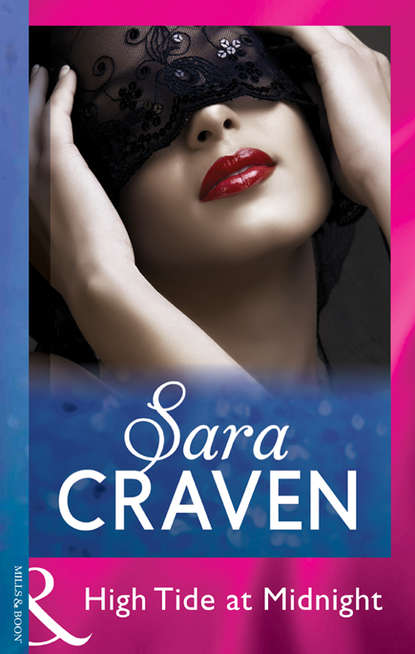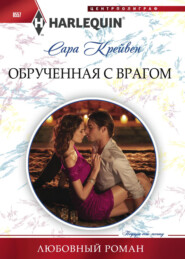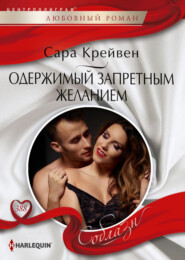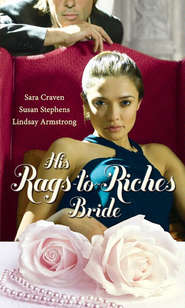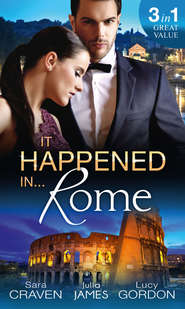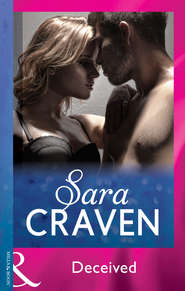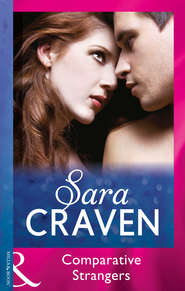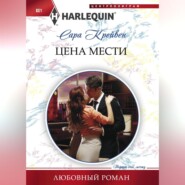По всем вопросам обращайтесь на: info@litportal.ru
(©) 2003-2024.
✖
High Tide At Midnight
Автор
Год написания книги
2018
Настройки чтения
Размер шрифта
Высота строк
Поля
Men who looked like that, she thought dazedly, had once sailed ships bringing contraband from Brittany into the coves along this coast under the noses of the Excisemen. And men who looked like that could even have hung lanterns on lonely rocks to lure unsuspecting shipping to a terrible doom.
He must have sensed her eyes on him because he looked up, and Morwenna found herself shrinking from the mixture of angry disbelief mingled with contempt that she saw in his face.
She tried to tell herself that she was still asleep and that her dreams had crossed the frontier into nightmare, but then he spoke and she knew that it was all only too real.
‘Who the hell are you?’ he said. ‘And what are you doing here? You have two minutes to answer me before I have you thrown out.’
CHAPTER THREE (#ub6d25297-9eff-5c73-b164-eaa51dc5ceb2)
FOR a moment Morwenna was stunned into silence, then impetuously she jumped to her feet, regardless of her hair which had come loose from its topknot and fell about her shoulders in a silken shower.
‘And just who are you,’ she raged, ‘to speak to me like that? And how dare you open that parcel? It was for Mr Dominic Trevennon—a private matter. But you have the unmitigated insolence to walk in here and….’
‘I can’t imagine who has a better right,’ he interrupted with icy hostility. ‘You are the intruder here, not I. And your time is running out, so I advise you to answer my questions.’
Her head came up defiantly. ‘I need tell you nothing,’ she said. ‘I wish to speak to Mr Trevennon and no one else.’
There was a long electric silence. Then,
‘I suppose,’ he drawled, ‘that it’s just within the bounds of possibility that you aren’t playing some devious provocative game of your own to attract my attention and that you really don’t know who I am.’
For a minute Morwenna felt numb. Her eyes travelled over him desperately rejecting what her brain told her was the truth.
‘No!’ she whispered. ‘It—it’s not true. You can’t be….’
‘But I assure you I am—what was it you called me?—the uncrowned king of Cornwall. And this’—he showed his teeth in a mirthless smile—‘is my castle.’
‘No!’ Morwenna pressed her hands against her burning cheeks. ‘It’s you that’s playing some game. You can’t be Dominic Trevennon. You’re not old enough.’
He laughed contemptuously. ‘If that’s an attempt at flattery….’
‘It isn’t,’ she said flatly. ‘By my reckoning the real Dominic Trevennon must be in his sixties at least.’
He showed no surprise at her statement. Instead he nodded slightly as if her words had only confirmed what he himself already knew.
‘Now,’ he said very quietly, ‘tell me who you are and what you want in this house.’
She could have ground her teeth. Instead she held on tight to her self-control. ‘I’ve obviously been under a misapprehension,’ she said tonelessly. ‘I can only apologise, and leave. May I have my pictures, please—and their wrappings?’ She held out her hand, but he ignored the gesture completely.
‘Not without an explanation,’ he said. ‘You had enough to say for yourself when we met earlier. Why this sudden reticence? You wanted to ask me a favour—remember?’
She gave a bleak little smile. ‘Not you,’ she said. ‘Someone else who clearly doesn’t exist any more. Your father, perhaps, or….’
‘My uncle,’ he supplied equally bleakly. ‘Who does exist, thank you. He’s upstairs in his room at this moment studying chess problems.’
She looked at him, startled. ‘Then—may I see him, please?’
‘No, you may not. Whatever business you feel you may have in this house, you can settle with me.’ He flicked a hand towards the paintings. ‘I assume it has something to do with these. If you’re hoping to sell them, then I should tell you at once that you’re wasting your time.’
‘I don’t,’ she denied swiftly, her glance in spite of herself going to the discoloured marks on the walls.
His eyes followed hers and he smiled thinly. ‘You’re quite right, of course. There were pictures hanging there once, and of considerably more value than these offerings.’
‘I admit they’re not her best work,’ Morwenna said, biting her lip. ‘But they do have a certain value—sentimental value, perhaps. Or that’s what I believe, or I would never have come here.’
‘Why?’ he said. ‘Because the subjects bear a certain superficial resemblance to certain buildings and landmarks locally? I think you’ll have to do better than that.’
‘Of course not,’ she flared at him, stung. ‘Because she—my mother, Laura Kerslake, the woman who painted those pictures, used to live here. This was her home when she was a girl. The Trevennons were her family—the only family she had until she married my father. Oh, I know that she seemed to have lost contact with you all, but….’
‘Did she send you?’ he interrupted, his voice glacial.
Morwenna shook her head, conscious that there was a sudden lump in her throat, but reluctant to reveal her distress to this man’s cold hostility. ‘She—died, several years ago,’ she said constrictedly.
He made a slight restless movement. ‘I’m sorry.’ It was a perfunctory remark, made simply to satisfy the conventions, and oddly that hurt most of all.
She lifted her head and stared at him dazedly. ‘I’m glad she can’t hear you say that,’ she said, almost in a whisper. ‘I’m glad she’s not here to know how little the people she loved really thought of her.’
‘You’re very quick with your judgments.’ He thrust his hands into his pants pockets. ‘You said she seemed to have lost contact with us. Did it never occur to you to ask yourself why? I don’t know how much or what she may have told you about her life here, but I’ll dare swear she never told you about the misery she left behind her when she went.’
‘You’re lying!’
‘What reason would I have to do that?’ he shrugged. ‘What I’ve said may be unpalatable, and light years removed from Laura Kerslake’s glossed-over version of her time at Trevennon, but it’s the truth for all that.’
It wasn’t so much his words, but his tone revealing so clearly that it was immaterial to him whether she believed him or not, that carried conviction. Morwenna stared at him numbly, unable to think of a thing to say.
He broke the silence himself eventually. ‘And what about your father—the gallant Sir Robert. Does he know that you’ve come here?’
‘My father’s dead too.’ She had to dredge the words up from some deep, painful recess of her mind. ‘And my brother Martin. They were killed in a road accident only a few weeks ago. The estate went to his cousin. All I have left are these pictures.’
‘My God,’ he said very quietly. ‘So that’s it. Your mother’s stories must really have got to you, my dear. Thirty-five years ago she found a refuge here, so you thought you’d do the same.’ He shook his head disbelievingly. ‘Well, I give you full marks for tactics. What a pity you were so totally misled about your likely reception.’
The contempt in his voice seemed to curl down her spine. She wanted to strike at him, to rake her nails down his dark face, and had to clench her hands into fists at her side. His face did not alter, but she knew all the same that he was quite aware of her inward battle with her temper and even faintly amused by it.
‘You are also very quick with your judgments.’ She stared defiantly across the room at him. ‘I admit I did come here to ask for a home—but only for these pictures. I thought you might store them for me until I got a place of my own. I thought that if you wouldn’t do it for my sake then you would do it for my mother’s. I know now that I was wrong.’
He gave a short, unamused laugh. ‘Disastrously wrong. So that was the favour you wanted to ask. I’m afraid I can’t accede to it. There are still people in this house for whom such an overt reminder of your mother would be undeservedly painful. My uncle is one of them, and he’s been a sick man for some years, so I would prefer him not to be upset in this way.’
She could hardly credit what her ears were telling her. What had happened here all those years before to leave this aftermath of bitterness? Whatever it had been she could not believe that her mother had ever been aware of it. Nothing had ever shadowed Laura Kerslake’s affectionate memories of Dominic Trevennon. She felt herself shiver, and moved her hands in a slight negative gesture.
‘I can’t pretend I know what’s going on here,’ she said, steadying her voice by a tremendous effort. ‘But under the circumstances all I can do is leave at once, and apologise for my intrusion.’
She picked up her rucksack from the sofa and walked towards the door, but he stepped away from the desk and into her path.
‘Just a minute,’ he said peremptorily. ‘It isn’t quite as simple as you seem to think. Just what did you hope to gain by coming here like this?’
‘Very little,’ she said wearily, her head bent. Her hands were clenched tightly round the straps of her rucksack, the knuckles showing white. ‘Just a few feet of storage space, that’s all. I see now of course that it was too much to ask of strangers. It was just that I’ve never—thought of the people in this house as strangers.’
‘How very appealing,’ he commented cynically. ‘What a pity you didn’t take the trouble to write or telephone in advance of your arrival. You might have been spared a difficult journey. And for the record, I’m not convinced by this cock and bull story of yours. It’s just unfortunate for you that giving refuge to waifs is no longer among our family failings. And you have your mother to thank for that.’





